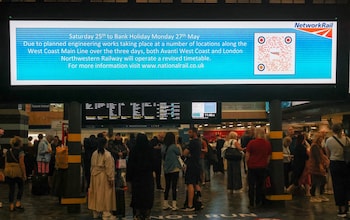French politicians have passed a law to make it harder for people to rent out their property on Airbnb for short-term lets.
The new law has cross-party support and is aimed at better regulating the furnished letting market for tourist accommodation. In particular it has fixed a much-criticised tax loophole that benefits short-term rental platforms. The law also returns some power to mayors to tackle the French housing crisis. It should take effect in early autumn.
Some politicians on the right had been reluctant to support the change and some measures of the bill have been weakened while politicians on the left have called for even tougher measures.
A consensus to regulate, but not on how.
The change means tax relief on income from letting furnished tourist accommodation is being cut to 30% from the previous - and present - level of 71%.
In addition, there are plans for the general introduction of a registration number for all rentals of furnished tourist accommodation, a monitoring tool long requested by French mayors to allow them to have better control of the development of their housing stock. It also regulates the proliferation of second homes by allowing local councils to restrict new construction in certain areas to primary residences.
Airbnb's managing director for France and Belgium, Clément Eulry, has said he is generally in favour of the new rules.
A problem that extends beyond France's borders
The deregulation of the property market through tourist rentals is not just a French phenomenon. The European Union and member countries have been dealing with the issue for several years.
Several European capitals and cities have already taken measures to protect themselves.
Amsterdam makes Airbnb pay the tourist tax and imposes a limit of 60 rental days per year on owners, with a budget of €1 million to track down offenders. Berlin has a law that bans renting out an entire property overnight and limits rentals to one room with a permit, with the risk of a €100,000 fine for non-compliance.
Barcelona requires a permit for tourist rentals, imposes a tax, and limits rentals to two rooms with the resident owner, with heavy penalties for non-compliance. Dublin requires permits to rent in the Temple Bar area. Lisbon has signed a deal with Airbnb which involves home sharing and paying tourist tax.
Airbnb was once subject to a €779 million seizure by the Italian authorities, who accused it of failing to collect tax on rental income received by owners between 2017 and 2021.
The European Parliament states that between 2019 and 2023, the number of peak nights increased, rising from 96.9 million monthly nights in August 2019 to 124.7 million monthly nights in August 2023.
A European initiative to ensure effective regulation of the short-term rental market.
The European Commission and its governing bodies are trying to harmonise legislation across the 27 member states and have agreed to increase the transparency of short-term rentals and promote sustainable tourism.
The measures include an online registration process for hosts in the EU, offering a registration number to facilitate identification and verification by authorities. Online platforms will have to, among other things, verify property details and carry out spot checks, with authorities able to suspend registrations and impose fines for non-compliance.
The European Parliament also approved new rules for a responsible and transparent short-term rental sector in February 2024. Once adopted by the Council, Member States will have 24 months to implement the new rules.
Disclaimer: The copyright of this article belongs to the original author. Reposting this article is solely for the purpose of information dissemination and does not constitute any investment advice. If there is any infringement, please contact us immediately. We will make corrections or deletions as necessary. Thank you.



